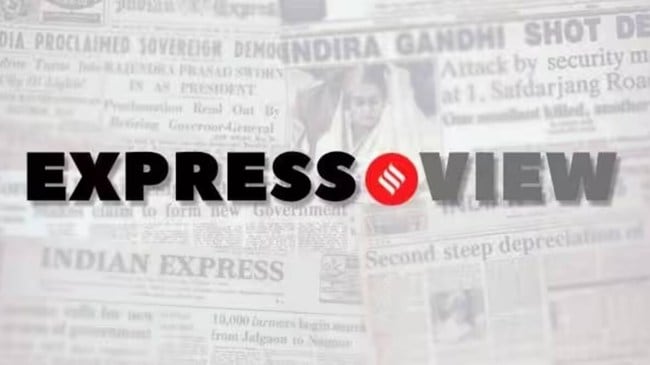Opinion Maharashtra’s Public Security Bill and its dangers
Maharashtra's proposed security law has loose definitions, threatens to criminalise legitimate debate and dissent
 The Maharashtra Bill threatens to undercut the constitutional pact between the state and the citizen that protects, not just permits, dissent and debate.
The Maharashtra Bill threatens to undercut the constitutional pact between the state and the citizen that protects, not just permits, dissent and debate. Claiming that the existing anti-terror laws are insufficient, the Maharashtra government last week tabled the Special Public Security Bill, 2024, to tackle “urban Naxalism.” The Bill empowers the state to criminalise “unlawful activity” by individuals and prescribes stringent punishments against organisations it deems unlawful. While this is precisely the remit of the Unlawful Activities Prevention Act (UAPA), 1976, the principle anti-terror legislation, the framers of the Maharashtra Bill deem it inadequate. While the processes are the same as UAPA, the Bill expands its definition of unlawful activity, bringing under its ambit everything from “being a menace to public order” and “interfering with administration of law,” to “generating fear and apprehension in public” and “preaching disobedience of law.” These descriptions are so loosely worded and vague that they could include legitimate dissent, protest or even mere criticism of the government. This is why Maharashtra’s new legislation is disquieting.
The proposed law brings “urban Naxals,” the term that has a political provenance, and one that has been used, controversially, to target students, writers, activists, into the legal vocabulary. In its Statement of Objects and Reasons, the Bill says that the “menace of Naxalism is not limited to remote areas of the Naxal affected states but its presence is increasing in the urban areas.” Its wide provisions seek to equate it with anything that raises questions about the government. It is alarming that a bill that empowers the government to evict the accused from premises and seize bank accounts even before a trial can begin, does not make vital distinctions, like between an active member of an organisation and someone associated with it. The courts have consistently called for a higher bar for the state to invoke stringent laws. The Delhi High Court, in the 2019 Delhi riots case, said that “the more stringent a penal provision, the more strictly it must be construed”. “The extent and reach of terrorist activity must travel beyond the effect of an ordinary crime and must not arise merely by causing disturbance of law and order or even public order; and must be such that it travels beyond the capacity of the ordinary law enforcement agencies to deal with it under the ordinary penal law,” the HC said. In the 2019 Bhima Koregaon cases, the SC has in the last two years granted bail to several accused. The “mere possession of the literature, even if the content thereof inspires or propagates violence, by itself cannot constitute any of the offences within Chapters IV and VI of the 1967 (UAPA) Act…”, the SC said.
The Maharashtra Bill threatens to undercut the constitutional pact between the state and the citizen that protects, not just permits, dissent and debate. A day after the Bill was tabled, the monsoon session of the assembly was prorogued. Given that the state goes to polls in November, the Bill has effectively lapsed. The proposed law must not be revived.



